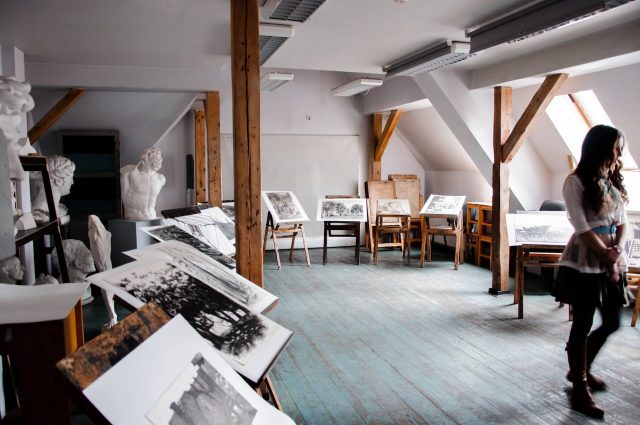In a world characterized by the relentless pace of daily life and the omnipresent pressures that often lead to stress and anxiety, there exists a profound avenue for healing and self-discovery: art therapy. This comprehensive article delves deeply into the world of art therapy, uncovering its transformative potential, its capacity for self-reflection, and its role in fostering profound personal growth.
Erotic Art and Fantasy: Exploring Desires and Taboos
In the vast realm of art, eroticism has been a subject that has both fascinated and challenged artists throughout history. Erotic art and pornography allow creators to delve into the depths of human desires and explore the boundaries of societal taboos.
While erotic art aims to provoke thought, stimulate emotions, and celebrate the complexities of human sexuality through aesthetic expressions, video porno primarily focuses on explicit depictions of sexual acts for the purpose of sexual arousal.
Read moreErotic Art and Fantasy: Exploring Desires and Taboos
How to Spark Creativity as a Beginner Artist
Creativity is the lifeblood of art. It is the magical force that fuels imagination and gives birth to extraordinary creations. As a beginner artist, discovering your creative spark can unlock a world of possibilities and help you express your unique vision. In this comprehensive guide, we will explore the true essence of creativity in the … Read moreHow to Spark Creativity as a Beginner Artist
What is the new Louvre?
All of us know very well the original Louvre in Paris. It is the world’s most visited museum and a vital part of Paris and its tourism. It’s a symbol of art by itself. But have you heard about another Louvre? The new one, which is located in Abu Dhabi, UAE. Louvre Abu Dhabi is … Read moreWhat is the new Louvre?
Rock art: what is it and what are its characteristics?
Perhaps it is man’s first form of artistic manifestation What is rock art? Rock art (from the Latin ars rupes “art on rock”) represents a wide-ranging artistic manifestation that can appear inside caves, grottos, and on other rock surfaces. It is considered the oldest form of human artistic expression. Originating in the context of prehistory, … Read moreRock art: what is it and what are its characteristics?
What is art? The definition and the different types.
Its meaning has undergone constant modifications throughout history Its meaning has undergone constant modifications throughout history Art is a diverse range of human activity in the creation of visual, auditory, or performing artifacts (works of art), expressing the author’s imaginative, conceptual, or technical ideas, intended to be appreciated for their beauty or emotional power. In … Read moreWhat is art? The definition and the different types.





